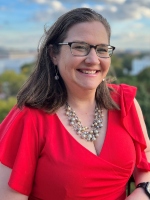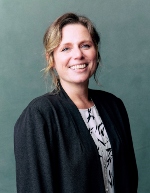 Caregiving for someone with cancer is a profound act of love, yet it can also be overwhelming—an adjective few caregivers admit to feeling. From providing emotional support to coordinating medical care, caregivers often carry a heavy load while trying to maintain their own health and well-being. Data from the Cancer Support Community’s (CSC) Cancer Experience Registry illuminates both the challenges caregivers face and the resilience they demonstrate every day.
Caregiving for someone with cancer is a profound act of love, yet it can also be overwhelming—an adjective few caregivers admit to feeling. From providing emotional support to coordinating medical care, caregivers often carry a heavy load while trying to maintain their own health and well-being. Data from the Cancer Support Community’s (CSC) Cancer Experience Registry illuminates both the challenges caregivers face and the resilience they demonstrate every day.
The Scope of Caregiving
Between October 2021 and May 2025, 861 caregivers contributed to the Cancer Experience Registry:
- 58% are currently providing care, and 42% have provided care in the past; 27% are bereaved
- Care recipients are often spouses/partners (50%), parents (21%), children (12%), or other loved ones (15%)
- 64% provide care seven days a week, averaging nearly 9 hours per day
Caregiving responsibilities are diverse:
- 87% provide emotional support
- 80% talk with the patient about cancer, treatment options, and prognosis
- 77% discuss care goals and treatment preferences
- Many also assist with household chores, transportation, symptom management, and finances
Despite these efforts, only 16% of caregivers have received formal training, and of those, 41% wanted additional training. When asked about feeling prepared to manage a patient’s emotional needs, only 41% felt pretty well or well prepared. Yet most continue to show up for their loved ones, often at personal cost.
Emotional Impact and Distress
Caregiving can take a significant toll on mental and physical health:
- 58% report worsened emotional/mental health
- 56% report poorer sleep
- 49% report lower energy levels
At the same time, caregiving can bring growth and meaning:
- 45% report improved relationships with the patient
- 35% note strengthened spirituality or faith
Registry data also show high levels of distress: more than half (52%) are at risk for depression, 42% are at risk for anxiety, and 61% express moderate to serious concern about the future. Around a quarter of caregivers identify unmet needs related to managing difficult feelings like guilt or anger (26%), balancing caregiving with personal life (25%), and maintaining their own mental health (23%).
Barriers, Disparities, and Emerging Needs
Social and economic factors magnify caregiving challenges. Caregivers with lower incomes face difficulties accessing respite care, mental health support, and workplace accommodations. Those providing care for specialized treatments, such as bone marrow transplants, or for aging adults, may struggle when informal caregiver networks are limited. CSC’s 2020 data also highlight financial stress: over 50% of caregivers expressed needing help managing health benefits and finances.
Emerging trends indicate that recognition and support for caregivers are critical. As CSC CEO Sally Werner notes, 2025 is “The Year of the Caregiver,” reflecting increased awareness of caregivers’ evolving roles and needs.
Evidence-Based Support: CancerSupportSource—Caregivers
CSC is advancing caregiver support through the CancerSupportSource—Caregivers (CSS—Caregivers) program, a distress screening and referral initiative adapted from the validated CancerSupportSource® program for patients. Caregivers were engaged at every stage of development, including focus groups to identify primary responsibilities and stressors—covering self-care, caregiving roles, and patient experiences—and cognitive interviews to ensure clarity and relevance.
Support Programs and Resources
Caregivers benefit from flexible, multi-dimensional support. CSC and Gilda’s Club offer free programs, including:
- Support groups for peer connection and emotional space
- Educational workshops, such as Push the Pause Button – Supports for Caregivers and Cancer Transitions: Caregiver series
- Digital platforms, like MyLifeLine, enable caregivers to request help, track appointments, and connect with community support
- Financial navigation, including workshops (Frankly Speaking About Cancer: Coping with the Cost of Care) and one-on-one guidance via the Cancer Support Helpline
Programs are offered in in-person, virtual, and hybrid formats to accommodate caregivers’ busy schedules and diverse responsibilities.
Collaboration and Advocacy
Organizations like CSC play a key role in convening caregivers, providing peer support, education, and advocacy. Effective programs are creative, accessible, and tailored—recognizing that one size does not fit all. Advocacy amplifies caregivers’ voices, especially around financial and health equity, ensuring caregivers receive the support they need to thrive.
A Message for Caregivers
Whether you call yourself a caregiver, carer, care partner, co-survivor, or something else, CSC encourages you to care for your own physical, emotional, and spiritual needs. Support is available through programs, peers, and professional resources.
Caregiving can be both challenging and rewarding. By acknowledging the dual nature of caregiving, addressing unmet needs, and connecting caregivers with meaningful support, we can nurture resilience and break barriers—ensuring that those who give so much are also sustained and supported.
For tips and resources on caregiver self-care, visit Cancer Support Community – Caregivers.


